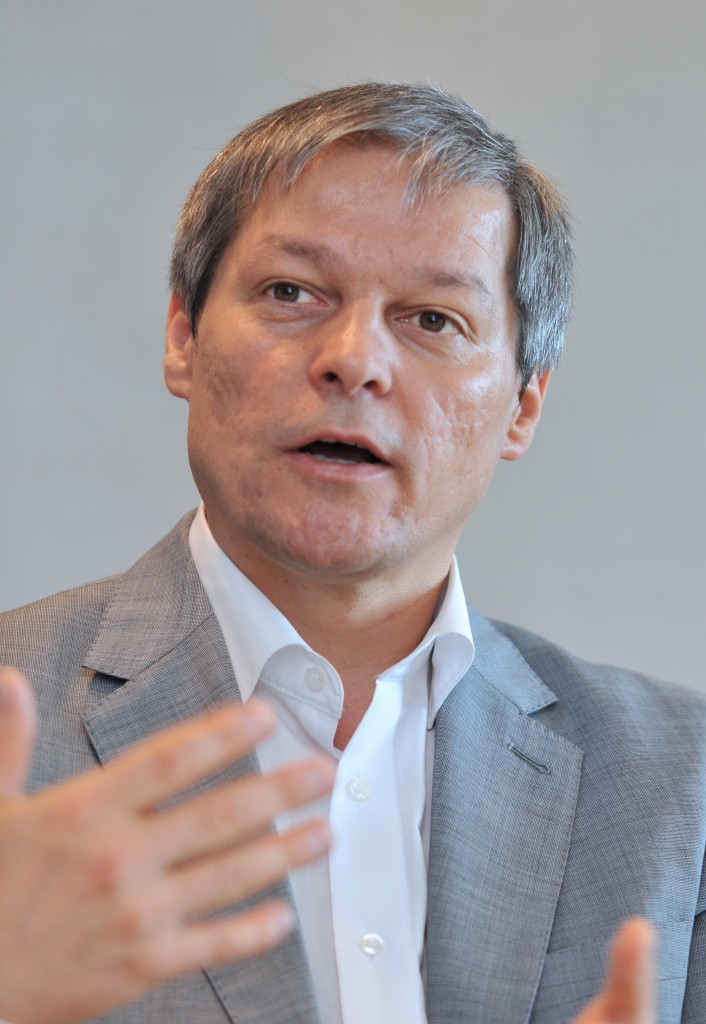Interview with Dacian Ciolos, European Commissioner for Agricultural and Rural Development
Q. What is the aim of introducing a new system under the European Union’s Common Agricultural Policy to take account of environmental concerns?
A. We should not focus only on short-term competition and economic benefits and use up natural resources which support agricultural sustainability. We adopted “greening,” direct payments to farmers who take environment protection measures. European consumers are asking for environmentally friendly agriculture, as well as food security and high-quality food products. Land is used by farmers to cultivate, but it is also a public possession of people as a whole.
 Q. Focus on environmental concerns seems to have weakened compared with the original commission report.
Q. Focus on environmental concerns seems to have weakened compared with the original commission report.
A. I do not believe it has weakened from the original commission report. I think the policy fully responds to environmental problems. The commission report is a general proposal, and we hold discussions with the European Parliament and the Agriculture and Fisheries Council to adapt the policies according to different regions. “Green” direct payments are one of the examples where the basic principle remains unchanged. With a very few exceptions, the system will be applied to all farmers in Europe, contributing to preserving farmlands and biodiversity.
Q. Concerning the issue of geographical indications, the Japanese government is torn between conflicting stances of the United States which is cautious about introducing the system and the EU which is eager to do so.
A. Japan should not be influenced too much by what other countries say. I think if Japan establishes a law on geographical indications to protect its high-quality agricultural products and create a system to sell high-quality, traditional specialties, it will eventually be consistent with EU policies. If Japan and the EU cannot agree on geographical indications, negotiations for Japan-EU economic partnership agreement will fail to reach conclusion. But we are not asking Japan to adopt something that is impossible. We only want to protect traditionally important European-made products in the Japanese market by using geographical indications. I don’t believe it will be of much concern for Japanese farmers. If both of us mutually respect each of our systems, it means high-quality products of Japan will be protected in European markets.
Q. The new CAP encourages farmers’ organizational activities, while Japan’s agricultural reform focuses on supporting individual farmers.
A. We cannot simply make comparisons because the size and power of major retail chains differ according to country and region. In the new CAP, we hope to support farmers’ group activities like cooperatives, so that they can negotiate on even ground with retail chains in Europe. We also hope to promote local production for local consumption, which many farmers have started to focus on.
Q. Are crop damages caused by wildlife an issue of concern also in Europe?
A. It is becoming a problem in some regions. We have some measures included in the new CAP to prevent crop damages by wildlife. One is to secure food for wildlife inside forests so that they would not come to farmlands. The other is to compensate for a part or all of losses when farmers actually suffer damage. (The interview was conducted on Monday, November 11, in Tokyo.)
(Nov. 13, 2013)

